‘Anonymous’ Says It Hacked Many Iranian Government Accounts
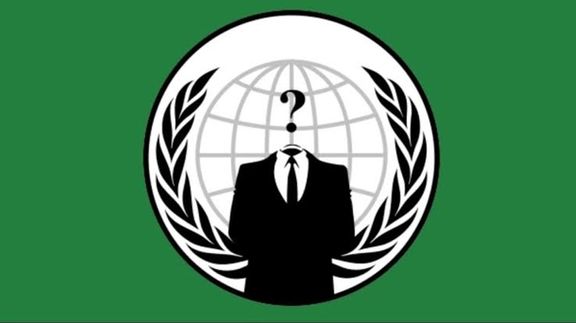
Hacktivist group ‘Anonymous’ that has focused its cyber operations on Iran since the popular protests started earlier this month, says it has made many state accounts inaccessible.

Hacktivist group ‘Anonymous’ that has focused its cyber operations on Iran since the popular protests started earlier this month, says it has made many state accounts inaccessible.
The group claimed on Tuesday that it accessed many government accounts and made them inaccessible, without providing any details about how they can prevent the government from accessing its own money.
The group said it will protect the money because it belongs to the Iranian people. The only way the government can be denied access to its money is if the funds are transferred abroad, which is unlikely given Iran’s lack of international banking ties.
During the past few days, Anonymous has hacked several Iranian banks, including Melli and the Sepah banks – the latter linked to the country’s Revolutionary Guard -- as part of its ongoing operation against the government of Iran in solidarity with the popular protests triggered by the death in custody of the 22-year-old woman Mahsa Amini.
The group also claimed it had hacked the database of Iran’s parliament and the Supreme Audit Court, releasing the phone numbers and other data of all lawmakers.
The group also attacked the official website of Iran’s Supreme Leader Ali Khamenei last week. Both the Persian and English versions of Khamenei’s website are still down.
The group has also disrupted the IRGC-affiliated Fars news agency and the news website of the state broadcaster.
If the government blocks the people from accessing the Internet, Anonymous will block the government’s access, the group has said.
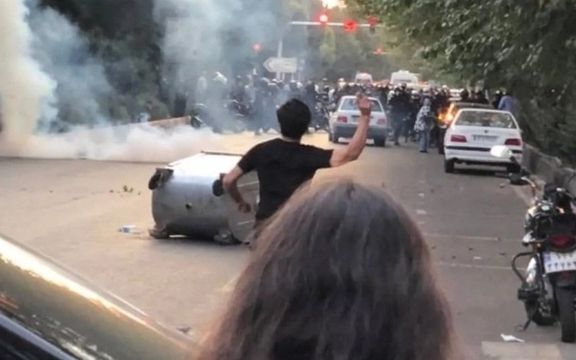
Iran's state television has opened its doors to some reformists who are allowed to make hygienic comments about the uprising by the country's youth and women.
But the tightly controlled broadcaster always juxtaposes the reformists with staunch hard-liners who offer counterarguments to the reformists' shy statements about why the system needs to open up to survive.
Even some of the reformists who have taken part in the debates on the Iranian state TV, have said in interviews with relatively independent media outlets in Iran that the state TV's openness is questionable.
Sadeq Zibacalam a usual suspect on Iranian media and foreign-based televisions to comment on almost everything during the past 30 years, has said in an interview with Didban Iran website that "state TV officials' behavior is authoritarian. Like all authoritarian regimes, the state TV also never acknowledges that there might be flaws and weaknesses in the system."
He added that "the grudge and hatred that has been accumulated in the Iranian society over the years is [partly] due to ignoring these weaknesses." He added that the state TV which operates under Supreme Leader Ali Khamenei "has never had a realistic approach to ongoing developments during the past 43 years."
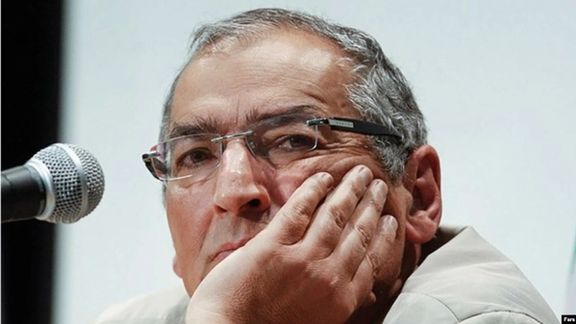
Accordiong to Didban Iran, many observers have been recently criticizing the state TV “which is no longer the point of reference for news and information for the people of Iran." In fact, government media has long ceased to be credible and instead people rely on Persian-speaking broadcasters, such as Iran International and Manoto TV for news and views.
"Just like the government, the state TV attributes the protests to US conspiracies and the actions of Zionists, monarchists and rioters," said Zibakalam, adding that the state TV is part of the Iranian government. It is no surprise as the chairman of the television, Payman Jebelli has reiterated time and again that it is the government's not the people's media. He further added that the state TV does not have any plan to help the regime get out of the current crisis.
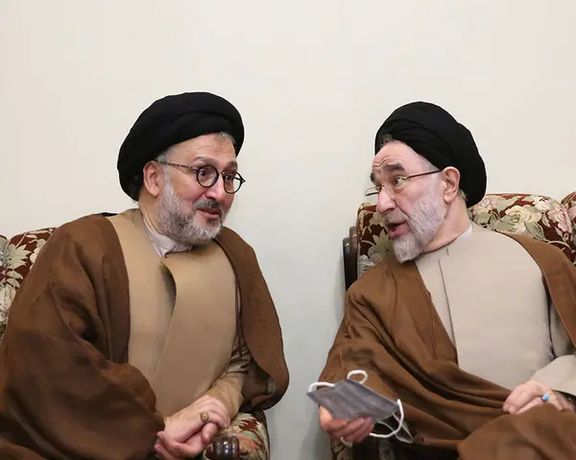
Meanwhile, Mohammad Ali Abtahi, a cleric who was former President Mohammad Khatami's chief of staff in late 1990s and early 2000s, said in an interview with Didban Iran that "the state TV's new approach of openness is temporary." He added that some ruling hard-liners say that putting one step back from their uncompromising positions might lead to a domino-like collapse of the system.
Abtahai, who was the head of the Iranian radio in the late 1980s and early 1990s, said, "I believe the open debates that are currently taking place on the state TV might not continue."
Some in the Iranian government believe that hard-liners should not put even one step back from their positions as a result of the protests that followed Mahsa Amini's death in custody, Abtahi argued. This school of thought does not tolerate dialogue, he added. "The other school of thought is reformism. Those who believe in this maintain thatwrong approaches could be corrected in a step-by-step approach," he said. However, he added that social pressure can force hard-liner officials to make compromises about some of their "principles".
However, critics of reformists say that more than two decades of a step-by-step approach has made matters worse and hard-liners more dominant in the government.
Two days after comedian Mehran Modiri belatedly expressed support for the protests, the state TV announced that it has cancelled his talk show, in a sign of intolerance.
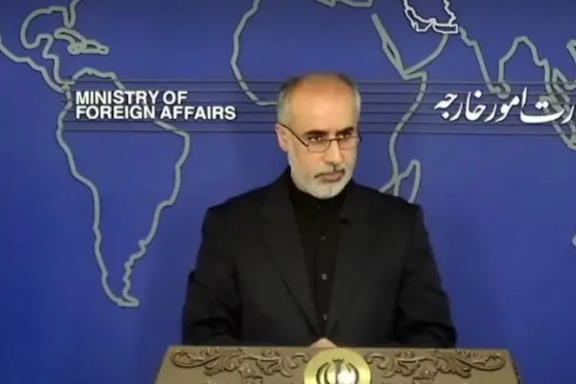
Iran’s foreign ministry spokesman attacked the United States on Wednesday for expressing support for the demands of protesters, calling it a double standard.
Nasser Kanaani said in a tweet that the West pursues a dual policy by imposing sanctions on Iran while expressing solidarity and support for Iranians.
The Biden Administration and the European Union have condemned the use of force by Iranian security forces against protesters and the death in custody of a 22-year-old woman, Mahsa Amini.
The White House has also pledged help in providing digital technology to ensure access to the Internet for Iranians, amid widespread disruptions by the government.
Nationwide protests that began on September 18 continued Tuesday in a dozen cities, while at least 76 protesters had been killed as of Monday, according to an Iranian human rights group based in Norway.
In an interview with the National Public Radio during his stay in New York, Foreign Minister Hossein Amir-Abdollahian denied there were serious protests in Iran and repeated usual accusations of foreigners fomenting dissatisfaction among the people.
The US has kept sanctions imposed by former President Donald Trump on Iran after he withdrew from the Obama-era nuclear accord known as the JCPOA. However, the Biden Administration entered into talks with Tehran in April 2021 to restore the deal, but in the latest twist Iran has made demands unacceptable to Washington.
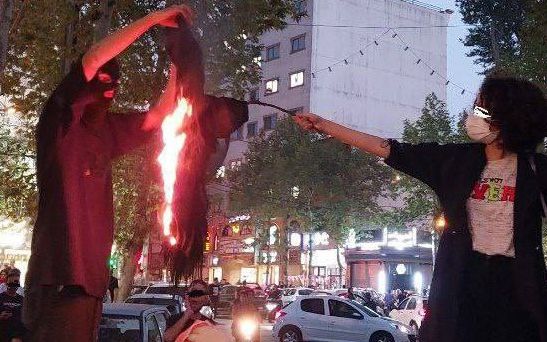
As protests in Iran resumed Tuesday evening, Fars news agency linked to the IRGC announced that the Supreme National Security Council was set to meet tonight.
The Fars website is inaccessible from abroad, apparently because its managers are concerned about hackers who have been active in the past ten days, disabling many government websites or obtaining confidential information. But its Twitter account announced that Ali Shamkhani, the Secretary of the security council said a meeting will be convened tonight and former President Hassan Rouhani has also been invited to attend. It added that the ongoing unrest, “the exit of some members of parliament and the nuclear deal will be discussed.”
It is not clear what the exit of lawmakers refers to but in the Persian text its meaning seems to be leaving the country.
Fars also announced that a secondary airport near Tehran, Payam International Airport is closed, without providing any explanation.
There have been rumors in the past two days that some high-ranking regime insiders have sent their families abroad. Canada, Russia and Turkey have been mentioned as destinations.
Although security forces have killed more than 75 protesters according to Norway-based Iran Human Rights group, but the killings have not been at the horrific level of November 2019, when Supreme Leader Ali Khamenei reportedly authorized unrestricted use of military weapons, killing at least 1,500 protesters.
Observers and ordinary Iranians have been anxious over the possibility that the regime might use unrestricted and all-out military force against the people.
Iran International cannot verify the full authenticity or details of videos posted on Twitter, but we use out best judgement to share what we believe is not disinformation.
Our live coverage of Tuesday protests ended at 00:40 Iran time on Wednesday.
-----------------------------------------------------------------------------------------------------------------------------
-----------------------------------------------------------------------------------------------------------------------------
-----------------------------------------------------------------------------------------------------------------------------
-----------------------------------------------------------------------------------------------------------------------------
-----------------------------------------------------------------------------------------------------------------------------
Protests in Gohar Dasht district of Karaj, a city 20 miles west of Tehran.
-----------------------------------------------------------------------------------------------------------------------------
A human rights monitoring group tweeted this video showing protests in the central city of Yazd, where people blocked streets to prevent the movement of security forces.
----------------------------------------------------------------------------------------------------------------------------
Security forces shot an elderly citizen in the Narmak district of the capital Tehran during Tuesday's protests. In this video, people are carrying him away.
-----------------------------------------------------------------------------------------------------------------------------
Another video showing protests in the Kurdish city of Sanandaj close to Iraq in western Iran. It seems security forces are focused more on Tehran, rather than outlying cities.
-----------------------------------------------------------------------------------------------------------------------------
-----------------------------------------------------------------------------------------------------------------------------
Basij para-military forces in the Ekbatan district of Tehran intimidating the residents who have been regularly chanting anti-goverment slogans from their apartment windows.
-----------------------------------------------------------------------------------------------------------------------------
A Twitter user is reporting use of tear gas and guns by security forces in the Kurdish city of Sanandaj in western Iran.
--------------------------------------------------------------------------------------------------------------------------
A large protest march in Keshavarz Boulevard in Tehran Tuesday evening.
-----------------------------------------------------------------------------------------------------------------------------
Protests in the western city of Kermanshah Tuesday evening, as marchers chant "Woman, Life, Liberty", a favorite slogan of the nationwide movement that was triggered when a 22-year-old woman, Mahsa Amini was arrested for "improper higab" and received fatal blows to her head in police custody.
---------------------------------------------------------------------------------------------------------------------------
Protests were taking place in the port city of Chabahar in the southeast on the Sea of Oman for the first time. The region is populated mostly with Sunni Iranians.
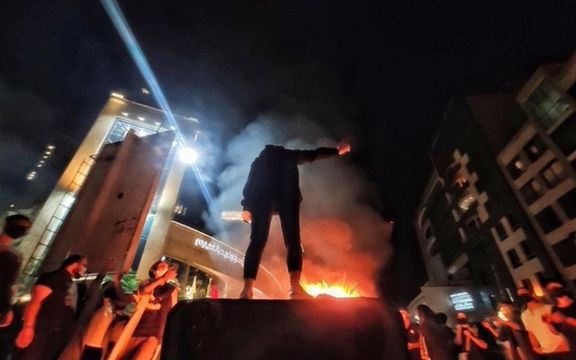
More than 10 days after the start of Iran’s protest, the state-controlled television and some of the news websites have started to explore the reasons for the uprising.
The state TV has been inviting reform-minded pundits and politicians to take part in debates with hard-liner figures, seeking ways out of the crisis that has paralyzed the country's political system. However, those taking part in the debates can by no means speak as openly as the protesters in the streets about key political issues.
The coverage of the uprising in the official press is minimal and often cryptic, but some news websites bravely discuss issues somewhat openly.
One of the efforts to shed light on the events and their reasons isan article by Jafar Mohammadi in Asr Iran website which was once part of the pro-reform media fleet. According to Asr Iran, Iranians do not have too many demands. They simply want a normal life like the people in Turkey, India, Malaysia and Viet Nam.
In the article headlined "Regime's Victory or Retreat," Asr Iran described the situation as "bitter and bloody" and said that the events taking place cannot be ignored. The website pointed out, "Iranian officials keep saying that protesters should be differentiated from rioters, but someone should ask them whether they allow any legal protests." The article asserted that when the government does not allow lawful demonstrations, protests could be derailed from their peaceful path and turn into violent events.
The article observed that although officials might be right that foreigners have an interest in the ongoing events, but they should note that it is their mismanagement that has exhausted and frustrated the people. Officials should look for foreign agents and infiltrators among themselves rather than among the protesters.
Asr Iran suggested that officials should look for individuals in the system that have made controversial remarks about hijab and the morality police during the past month. The suggestion reminds everyone of hard-line clerics such as the firebrand Friday Imam of Mashad, Ahmad Alamolhoda who has accused young women of showing their hair to satisfy pleasure-seeking men and charged that women who do not observe the compulsory hijab are the enemies of the prophet and has called for strict measures against "bad hijab" women. Asr Iran wrote that such officials have fanned the fire of unnecessary sensitivities about hijab and annoyed the public.
The website further criticized state officials for blaming the people for all the problems and evading their own responsibility even about the death of a young woman who was murdered by the morality police. About the protesters who were killed by the security forces, Asr Iran pointed to Interior Minister Ahmad Vahidi's comment who said people kill their enemies and leave their bodies among the protesters! Asr Iran asked: Isn't it really possible that a police officer has killed someone even by mistake?
"Don’t the officials watch videos that show the police's behavior? Why don't they at least apologize? Why don't they assume responsibility for what the police have done?" asked the website, adding that when the officials ignore these, the people will become even angrier."
The website reminded that expressing sympathy with the people would be the regime's biggest victory, but some of its officials see that as a retreat. The author warned that "Without the people, and by ignoring the people's demands, the Islamic Republic will no longer exist."
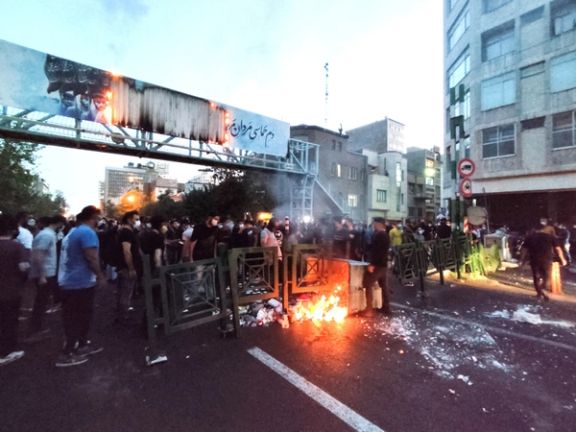
Iran remained in the grip of anti-government protests in many cities on Monday, for the tenth consecutive day, with the death toll now rising to over seventy.
Iran Human Rights (IHR), a monitoring group based in Oslo, Norway, said Monday at least 76 protesters have been killed by security forces so far. According to IHR, in many cases, handing over the bodies of the victims to their families was made contingent on agreeing to secret burials. Iran Wire said Tueday at least 2,000 protesters have been arrested in Tehran alone over the past ten days.
The state broadcaster, IRIB, had reported a death toll of 41 until Monday but said this included both protesters and security forces.
Protesters took to the streets again across the country including in Tehran, Tabriz, Yazd, and Sanandaj in different neighborhoods Monday evening chanting slogans against the Islamic Republic, security forces, clerics, and Supreme Leader Ali Khamenei and often clashing with security forces.
More videos have emerged of security forces brutally beating protesters. In one such video from Shiraz in southern Iran several anti-riot police are seen beating up a protester with batons.
In some neighborhoods of Tehran such as Ekbatan, a massive housing development with a middle class population of over 100,000 in the west of the capital with, residents have been displaying their support by shouting slogans from their windows after nightfall.
Chief Justice Gholamreza Mohseni-Ejei on Monday threatened celebrities who have supported the protests of retribution. Dozens of celebrity athletes and artists of every walk as well as some university professors have been expressing support for the protesters and announcing their departure from the national team, the state broadcaster, or their jobs.
“Get this into your heads, you murderers! We have lived on this land for thousands of years and seen what happened to Mongols [invaders]. We will stand on your graves, too! You can’t silence us!” Mohammad Khodabandehlou, a footballer with Sirjan Golgohar FC wrote on Instagram.
The local prosecutor’s office Monday impounded the luxury villa of soccer legend Ali Karimi, in Lavasan, a resort area only kilometers from Tehran, for his candid and continued display of solidarity with the protests immediately after they began.
Photos of the villa’s entrance were published on social media with signs saying the property had been sealed by judicial order “until further notice” but these were removed later without any explanation.
The Revolutionary Guard (IRGC)-linked Fars news agency had earlier accused Karimi, who is currently in the UAE, of being an “agitator” and “leader of rioters” and a hardliner former lawmaker, Hamid Rasaei, demanded confiscation of his properties in Iran.
Karimi, known as the ‘Asian Maradona’, who is followed by over 12 million on Instagram reacted by saying “A house has no value without the homeland”.
Instagram, the only major social media platform not blocked in Iran in the past few years, was filtered after protests began. The decision has a huge impact on hundreds of thousands of small businesses and millions of people who relied heavily on the platform for making a living
University classes are held online to prevent student protests on campuses as intermittent Internet blackout continues. In many cities such as Shiraz and Qazvin as well as Alborz province, authorities closed schools Monday “due to air pollution” but in other areas classes convened as usual.
For a fourth consecutive day Monday, the IRGC shelled the camps of opposition Iranian Kurdish parties in the border areas of the neighboring Kurdistan region of Iraq. The operations started after rallies in Erbil and Sulaymaniyah in solidarity with Iranian protesters, particularly in the western Kurdish areas.